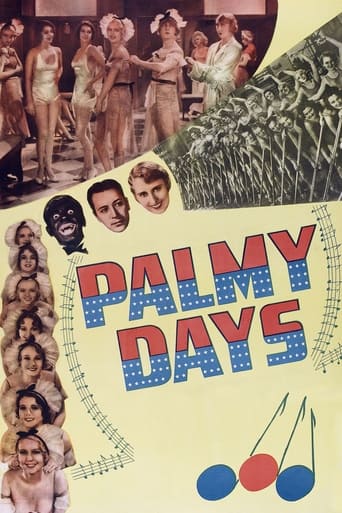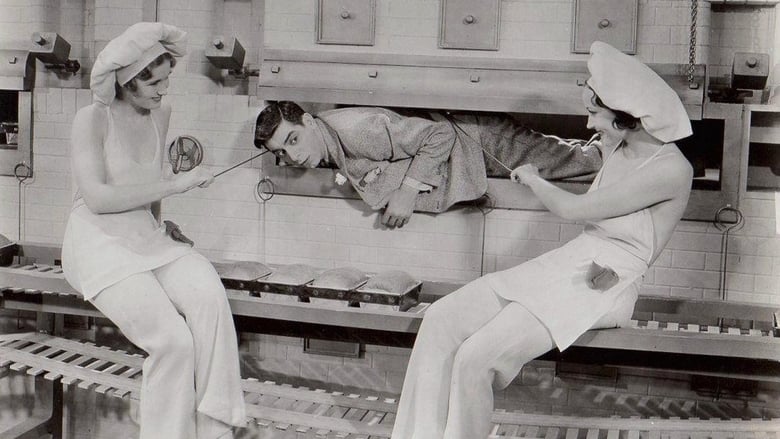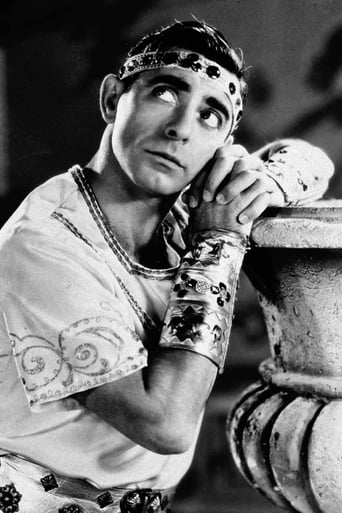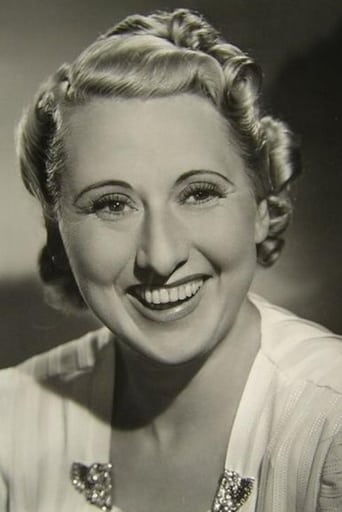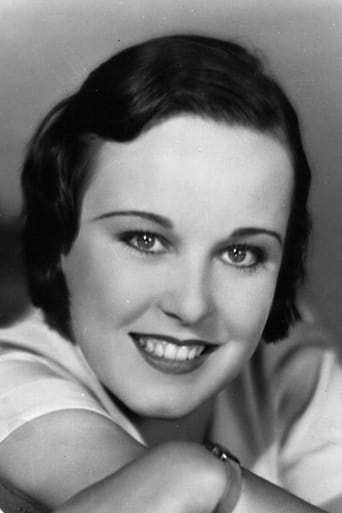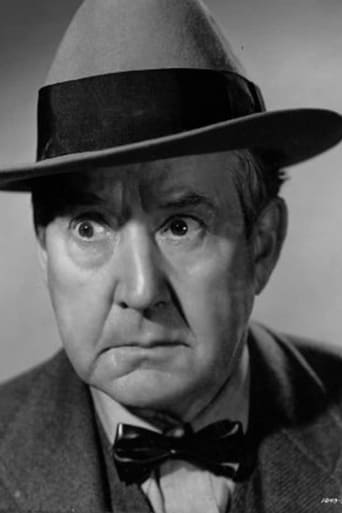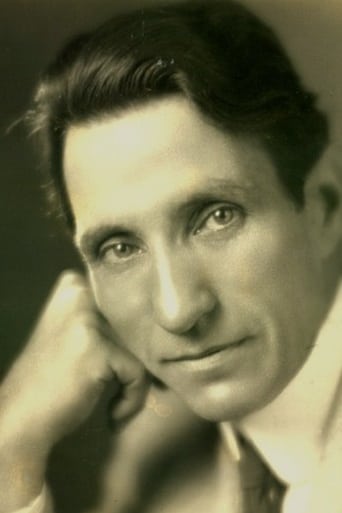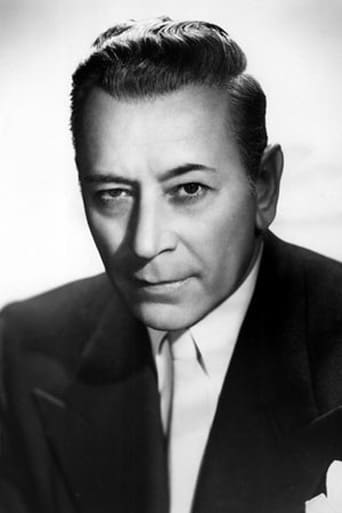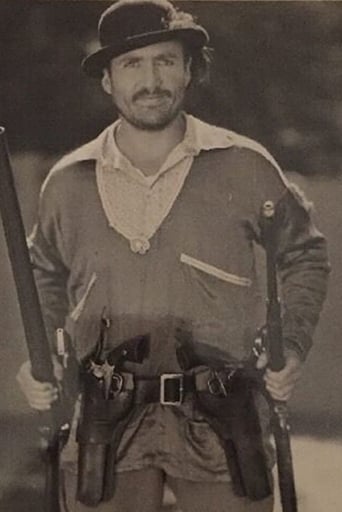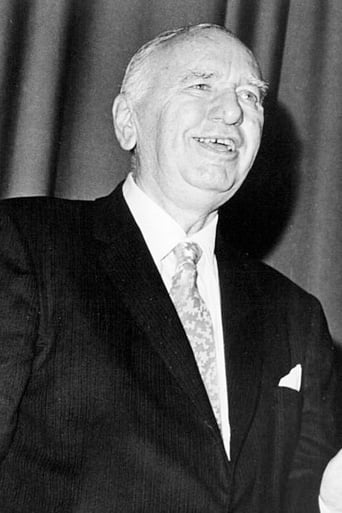Musical comedy antics in an art deco bakery (motto: "Glorifying the American Doughnut") where Eddie Cantor, the overworked assistant to a phony psychic, is mistaken for an efficiency expert and placed in charge. Complications ensue when the psychic and his gang attempt to rob the payroll.


Similar titles
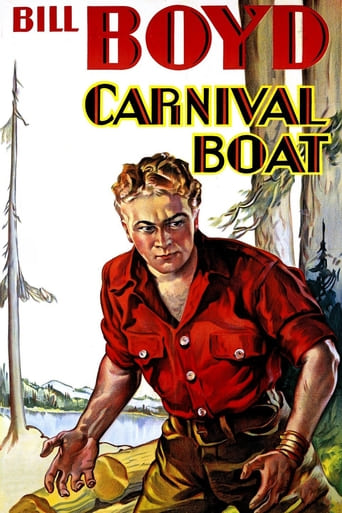
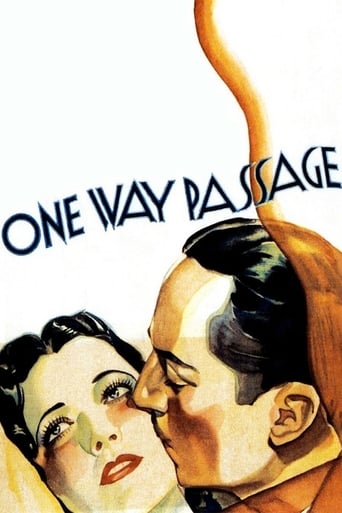
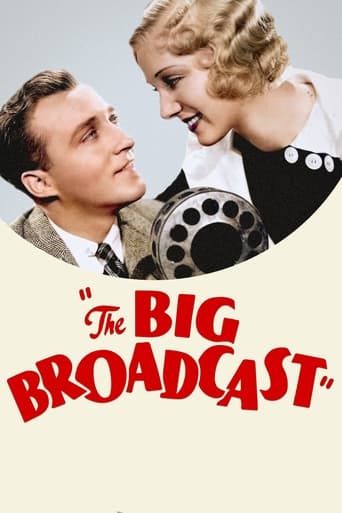
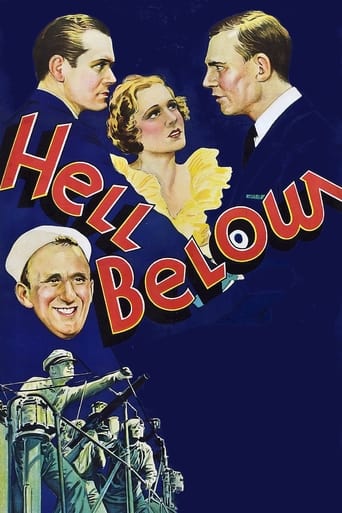
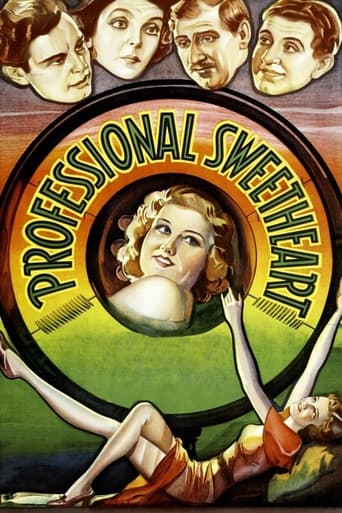
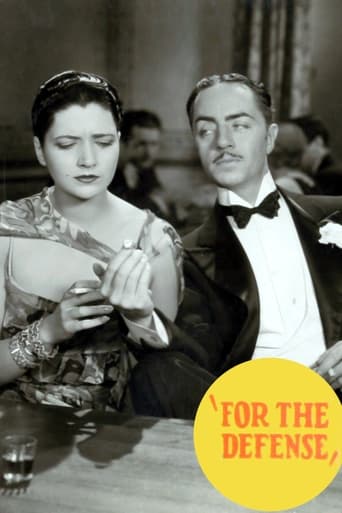
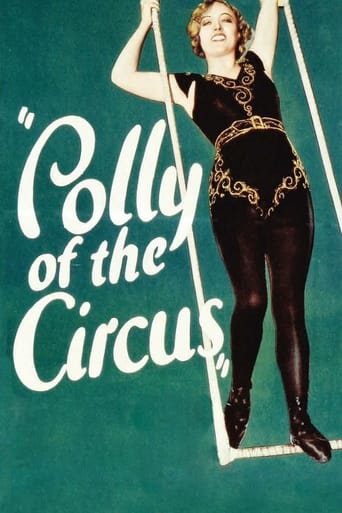
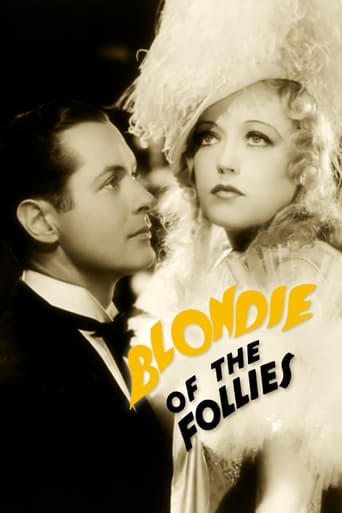
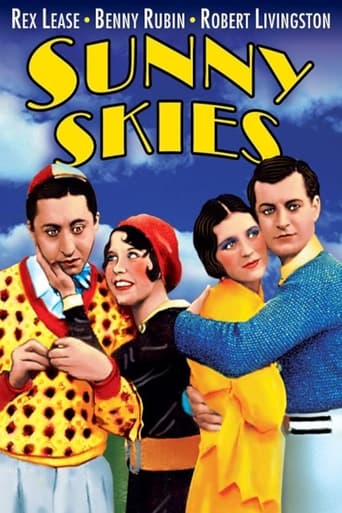
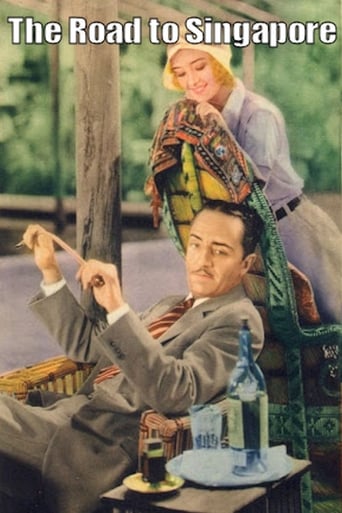
Reviews
this movie begins with the finest five minutes, principally consisting of a busby Berkeley dance number performed in the girls gymnasium. as they dance their daily exercise routine to stay slim and attractive (they work in a bakery), Charlotte greenwood sings "bend down sister". but leading up to that is a little gem that lasts less than 30 seconds in which a man comes in to order a cake. i won't "spoil" it for you by describing any further. suffice it to say, in my opinion of course, this could well be the best twenty eight seconds ever put on film. you see, inasmuch as it really has nothing whatever to do with the rest of the movie, it was simply put there for the sake of laughter. and it succeeds. o how it succeeds. i would hope to see this film on television one day again. but hope springs eternal. it is apparently not available on DVD.
With "Whoopee" one of Samuel Goldwyn's biggest moneymakers, the follow up for Eddie Cantor, Busby Berkeley and the Goldwyn Girls didn't need to veer away from the tried and true formula. Unfortunately it was released in those dark "this is NOT a Musical" days. Even though it was filmed in black and white and at just over 70 minutes was pretty short for a major production, it had an eye catching opening performed by some of the most beautiful chorus girls around (Betty Grable leading the line). "Bend Down Sister" proved to be the hit of the movie and was sung by lanky Charlotte Greenwood as she instructs her bakery girls to be conscious of their figures - "don't go messing with French Dressing" and "Ham and eggs should always be outside looking in". The girls go into a typical Berkeley geometric formation with exercise sticks as props.Eddie Cantor plays Eddie Simpson, a bumbling assistant to a phoney fortune teller (Charles Middleton). Eddie has an odd habit of singing whenever he is nervous and that is happening a lot because he has just been installed as an efficiency expert at Clark's Bakery (the medium wants to hypnotise the owner to take control!!) There's lots of laughs - at one point Eddie (in his love happy state) breaks off a corner of the desk and as the boss fumes, Eddie blithly tells him that will now discourage people from sitting on the desk and wasting time. Eddie gets to like the job and wants to go straight. He breathes new life into the bakery - even though it has the best food and the prettiest girls, it has no pizazz - until Eddie puts on a floor show and in "blackface" sings "There's Nothing Too Good for My Baby" - ("Baby wants a limousine - I show her one in a magazine").The crooks learn of a $25,000 payroll that Eddie has been given charge of - this makes for a lot of comic situations, Eddie posing as a woman, having to go into the girl's change rooms and at the end having a swimming lesson with the girls as they swim "au natural" -pretty racy but good fun. He ends up taking the money out of the safe and baking it in a loaf of bread - then accused of theft he must find the loaf to clear his name. Charlotte Greenwood joins him as his comic romance - the "physical torturist" according to Eddie."Palmy Days" was intended as a straight comedy with one song, "Yes, Yes" but when Goldwyn saw it at a preview he ordered more songs. "Yes, Yes" is performed at Joan's (Barbara Weeks) engagement party - Eddie thinks he is the lucky man (in reality it is really colourless Paul Page) and sings the energetic "Yes, Yes" followed by another formation dance by the Bakery Girls ("Bend Down, Sister" was a more enjoyable, precise routine). In this dance there were hat boxes as steps and at the end the dancers hold up cards to become a train. Audiences were more intrigued with Eddie's "put put" antics - a weird quacking noise he made throughout the movie. When the movie was re-released in the 1940s George Raft (formerly billed 7th) replaced Greenwood's name from 2nd billing. It must have been puzzling to Raft's many fans to find he played a henchman - "Joe the Frog" with only a few mumbled lines.Highly Recommended.
The other more knowledgeable reviewers have given comprehensive overviews of this movie so I'll stick to giving reasons for why I rate this as one of my favourite American musicals of all time.Charlotte Greenwood, she of the L O N G legs and faultless timing. This is one of three movies in which Miss Greenwood, for me anyway, made those movies worth watching time and time again, the others being "Springtime in the Rockies" and "The Gang's All Here". Her appearances are a joy to behold; she never puts a foot (or leg) wrong, and delivers lines as only she can. Wow, what a gal! The musical numbers. Yes, there are only three of 'em, but what great numbers. The best is "Bend Down, Sister", consisting of a magical song I've whistled my way through at least a couple of times every week for the past 40 years.Eddie Cantor. A unique talent, along the lines of Al Jolson. I remember Eddie in the early days of television; he could always deliver a song which would keep me transfixed, unlike most of the other singers appearing on television at the time. When I finally caught up with his early musicals in the 1960s, it was a revelation.Here's to you, Eddie, Charlotte and of course, The Master, Busby Berkeley!
PALMY DAYS (United Artists, 1931), directed by Edward Sutherland, became Samuel Goldwyn's second annual Eddie Cantor production, and another laugh fest with dance numbers and smiling chorines, compliments from choreographer, Busby Berkeley. This being the shortest Cantor musical in the Goldwyn series (77 minutes), it also consists of the least amount of songs (a total of three), plus a handful of funny dialog as well as some violent physical comedy that would be considered something of a throwback during the Mack Sennett silent comedy days.In this venture, Eddie Cantor plays Eddie Simpson, a nervous little man (as he was in his initial Goldwyn musical, WHOOPEE, in 1930, this time singing whenever he becomes excited), who becomes an unwitting assistant to Yolando (Charles Middleton), a phony spiritualist. Helen Martin (Charlotte Greenwood), a single woman in search for a husband, who manages a gymnasium, regularly attends Yolando's séances. Merry mix-ups follow when Helen mistakes Eddie for her future husband, while Eddie is mistaken for the predicted efficiency expert by Yolando's gullible but millionaire client, A.B. Clark (Spencer Charters), owner of a gigantic bakery business. Eddie becomes interested with Clark's doll-faced daughter, Joan (Barbara Weeks), whom he believes is in love with him, but she is really interested in Steve Clayton (Paul Page). Because Eddie stands in the way of Yolando's corrupt scheme to rob Clark of his $25,000, he hires his two thugs, Joe (George Raft) and Plug Moynihan (Harry Woods) to do away with him, but Eddie has his own problems being pursued by the man-chasing Miss Martin who won't take no for an answer from her "Romeo."The musical numbers for PALMY DAYS include: "Bend Down Sister" by Ballard MacDonald and Con Conrad (sung by Charlotte Greenwood and Goldwyn girls); "There's Nothing Too Good For My Baby" by Benny Davis, Harry Akst and Eddie Cantor (sung by Eddie Cantor in blackface); "My Honey Said Yes, Yes" by Cliff Friend (sung by Cantor/ performed by Goldwyn Girls); and "My Honey Said Yes, Yes" (finale reprise by Cantor and Greenwood). If the "My Honey Said Yes, Yes" score sounds familiar, it was later used for the 1981 Steve Martin musical, PENNIES FROM HEAVEN.Aside from two production numbers with the Busby Berkeley overhead camera shots and kaleidoscopic routines, trademarks that would make him famous, PALMY DAYS features several very funny comedy routines, including Greenwood giving Cantor a workout in the gymnasium, even at one point having him twisted in pretzel fashion like a contortionist; being offered a medicine ball with Cantor feeling it too big to swallow; and later being pursued by gangsters (Raft and Woods), hiding out into the company gym locker room while the girls prepare to take their daily swim, thus having Eddie disguising himself as one of the girls (looking almost amazingly like Jack Lemmon's cross dressing character in the 1959 comedy classic, SOME LIKE IT HOT), and being forced to strip by Helen Martin for a shower and a dip into the pool. (Watch Eddie get himself out of that!) The movie is highlighted with a comedic chase in the Clark bakery involving Eddie, Helen, Yolando and his gang over the $25,000 which is hidden in the dough of bread. The one brief scene in which Eddie tries to show off his operation to Mr. Clark (Spencer Charters), is a little inside humor lifted from their comedy routine in WHOOPEE. And let's not overlook a line uttered by Cantor during a séance early in the story, "There is a Minneapolis in heaven, just as there is a St. Paul." The chemistry between Eddie Cantor and Charlotte Greenwood is priceless. It's a pity they didn't do another movie together. In recent years, PALMY DAYS enjoyed some frequent cable television revivals briefly on Turner Network Television (TNT) in the early 1990s, the Nostalgia Channel, and on American Movie Classics during the season of 1992-93. It was distributed on video cassette, and one of the six package set of Cantor/Goldwyn musicals, but has since been discontinued, with the exception of ROMAN SCANDALS (1933) and KID MILLIONS (1934) which continued in video sale distribution for several years thereafter.PALMY DAYS would not rank as the American Film Institute's top 100 comedies of the twentieth century, but it's worth viewing, particularly due to Cantor's buffoonery that at times pre-dates the 1960s comedies of Jerry Lewis, but not to the extreme, and/or spotting some future film stars as George Raft (in a small role); watching the villainous Charles Middleton, five years before achieving fame as Ming the Merciless in the FLASH GORDON chaptered serials for Universal in 1936; and Betty Grable and Virginia Bruce, recognizable and visible in the opening dance routines. (***)
